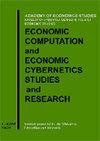房屋所有权的社会人口决定因素:土耳其的案例
IF 1
4区 经济学
Q3 ECONOMICS
Economic Computation and Economic Cybernetics Studies and Research
Pub Date : 2023-06-21
DOI:10.24818/18423264/57.2.23.15
引用次数: 0
摘要
在这项研究中,使用土耳其统计局2017年家庭预算调查的数据,调查了影响住房拥有率的社会人口因素。通过逻辑回归分析,证实了性别、年龄、家庭类型、年可支配收入、家庭规模、教育水平、婚姻状况、就业状况和活动状况等社会人口学变量对住房拥有率有影响。作为与文献的区别,实施了具有最佳标度的规范相关性分析,以检查与这些变量相关的子类别之间的相互作用。当检验变量的位置时,负荷值最高的主要变量是所有权类型、住房类型和收入。此外,负荷值最高的次要有效变量是年龄和教育程度。根据亚组,可以看出,作为房主/租客与年龄和工作状态的子类别相关,而对住房类型的偏好与教育和家庭规模的子类别有关。子类别的结果可能为未来的住房项目和政策提供指导。本文章由计算机程序翻译,如有差异,请以英文原文为准。
Sociodemographic Determinants of Homeownership: The Case of Turkey
. In this study, sociodemographic factors affecting the homeownership were investigated using data from the 2017 Household Budget Survey conducted by the TURKSTAT. To logistic regression analysis, it was confirmed that sociodemographic variables such as gender, age, household type, annual disposable income, household size, education level, marital status, employment status and activity status have an impact on homeownership. As a distinction from the literature, canonical correlation analysis with optimal scaling was implemented to examine the interactions between the sub-categories related to these variables. When the positions of the variables were examined, the main variables with the highest load value are ownership type, housing type, and income. In addition, the secondarily effective variables with the highest load value are age and education. On the basis of subgroups, it was seen that being a home owner/tenant was correlated with subcategories of age and working status, while preference for housing type was correlated with subcategories of education and household size. The results of sub-categories may provide guidance for future housing projects and policies.
求助全文
通过发布文献求助,成功后即可免费获取论文全文。
去求助
来源期刊

Economic Computation and Economic Cybernetics Studies and Research
MATHEMATICS, INTERDISCIPLINARY APPLICATIONS-
CiteScore
1.80
自引率
22.20%
发文量
60
审稿时长
>12 weeks
期刊介绍:
ECECSR is a refereed journal dedicated to publication of original articles in the fields of economic mathematical modeling, operations research, microeconomics, macroeconomics, mathematical programming, statistical analysis, game theory, artificial intelligence, and other topics from theoretical development to research on applied economic problems.
Published by the Academy of Economic Studies in Bucharest, it is the leading journal in the field of economic modeling from Romania.
 求助内容:
求助内容: 应助结果提醒方式:
应助结果提醒方式:


